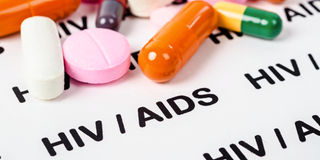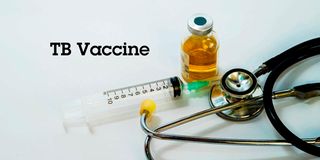Treasury cuts HIV, tuberculosis and malaria allocation even after Sh31bn USAID withdrawal gap

Critical HIV commodities, including antiretroviral drugs and testing kits, also hang in the balance as the reduced allocation may not cover existing demand.
Treasury Cabinet Secretary John Mbadi has slashed Kenya's budget for HIV, tuberculosis, and malaria programmes by Sh11.4 billion from Sh28.7 billion to Sh17.3 billion even as the country grapples with a Sh31 billion funding gap left by the United States government from the health sector.
The dramatic budget cut comes despite urgent appeals from health stakeholders who had requested additional funding from the Treasury to bridge the commodity gap created when the USAID and the United States President's Emergency Plan for AIDS Relief (Pepfar) froze funding.

Critical HIV commodities, including antiretroviral drugs and testing kits, also hang in the balance as the reduced allocation may not cover existing demand.
The timing of the reduction has stunned health officials, who argue that Kenya should be increasing, not decreasing, domestic funding for HIV and related programmes as international donors reduce their support.
In March, a joint meeting between the Council of Governors, Ministry of Health, National Syndemic Diseases Control Council, National Aids and STI Control Programme, and the National Assembly Health Committee had reached a consensus on funding needs.
The participants had agreed that Sh13.54 billion was urgently needed to maintain Kenya's HIV response following the Pepfar funding freeze. The allocation was designed to cover critical gaps: Sh7.68 billion for medical commodities, Sh5.8 billion to retain 11,059 frontline healthcare workers, Sh50 million for a human resources audit, and Sh140 million to integrate HIV programme systems into the digital health platform.
The budget shortfall threatens to compound the crisis created by USAID's funding withdrawal. The 11,059 frontline healthcare workers whose salaries depend on this funding now face an uncertain future, with only partial funding available to maintain their positions.
Critical HIV commodities, including antiretroviral drugs and testing kits, also hang in the balance as the reduced allocation may not cover existing demand, let alone expand services to reach new patients. "The additional funds would cater to the payment of staff, vaccines, HIV commodities, and health management systems," health officials had explained when requesting the Sh13.54 billion allocation. "However, these plans are now at greater stake, following the budget cut."
During his budget presentation in the National Assembly, Mbadi defended the reduced allocation as sufficient for the country's needs.
"To lower cases of HIV/Aids, malaria and TB and enhance vaccines and immunisation programmes in the country, I have proposed Sh17.3 billion for The Global Fund and Sh4.6 billion for vaccines and immunisation programmes respectively," Mr Mbadi stated. "I have also proposed Sh500 million for procurement of family planning and reproductive health commodities."

The budget shortfall threatens to compound the crisis created by USAID's funding withdrawal.
However, his figures fail to address how the reduced funding will compensate for the massive USAID withdrawal or maintain the existing level of services that Kenya's HIV response requires.
With over 14 million Kenyans living with HIV, the freeze directly impacted Access to antiretroviral (ARV) medicines, HIV prevention services, including HIV testing and counselling, prevention of mother-to-child transmission, pre-exposure prophylaxis, and condom distribution, treatment and care for opportunistic infections (including TB). The cut also resulted to layoff of staff who played a crucial role in outreach, education, adherence support, and stigma elimination, with UNAIDS projecting increases in new infections and deaths.
The USAID funding freeze deeply affected the health care workforce in HIV services, whose contribution stood at Sh5.8 billion; tuberculosis, malaria health products and technologies (Sh12.26 billion); other health products and technologies including medical oxygen, laboratory and cervical cancer (Sh3.7 billion); and country distribution costs of commodities supported by the US government (Sh2.26 billion). The gap also impacted data systems, which used to depend on USAID for Sh139 million, blood and blood products (Sh2.7 billion), family planning (Sh598 million), nutrition (Sh2.88 billion), and vaccines (Sh585 million).
The US government was directly supporting 40,608 staff across 40 counties, except Isiolo, Garissa, Mandera, Lamu, Tana River, Marsabit, and Wajir. Following the withdrawal, 1.4 million patients living with HIV across the 40 counties will be impacted, with a total loss of over Sh20 billion.
The counties that were most impacted due to the number of staff they were supporting and salaries lost include Nairobi, the most affected with 8,803 staff and a loss of Sh3.915 billion. Others include Kisumu (3,759 staff and a loss of Sh1.651 billion), Homa Bay (3,282 staff and a loss of Sh1.419 billion), and Siaya (2,490 staff and a total loss of Sh1.092 billion). The rest are Migori (3,268 staff, loss of Sh938 million), Mombasa (2,292 staff, loss of Sh853 million), and Kiambu (2,982 staff, loss of Sh784 million).
Reacting to the development, Nelly Munyasia, the executive director of the Reproductive Health Network, expressed disappointment that the government slashed the allocation to HIV, malaria and TB management instead of increasing it to cover the gap left by USAID withdrawal.
“It is so heart-breaking. In the recent three years, we've continuously talked about new HIV infections especially among adolescent and youth. It is honestly sad that our government doesn't think that HIV treatment needs priority. People living with HIV are struggling. When we got the funding cuts, we saw a drastic shortage of the drugs in hospitals, and some didn't go for their routine laboratory tests,” said Ms Munyasia, adding that this will strain HIV treatment and prevention services.


